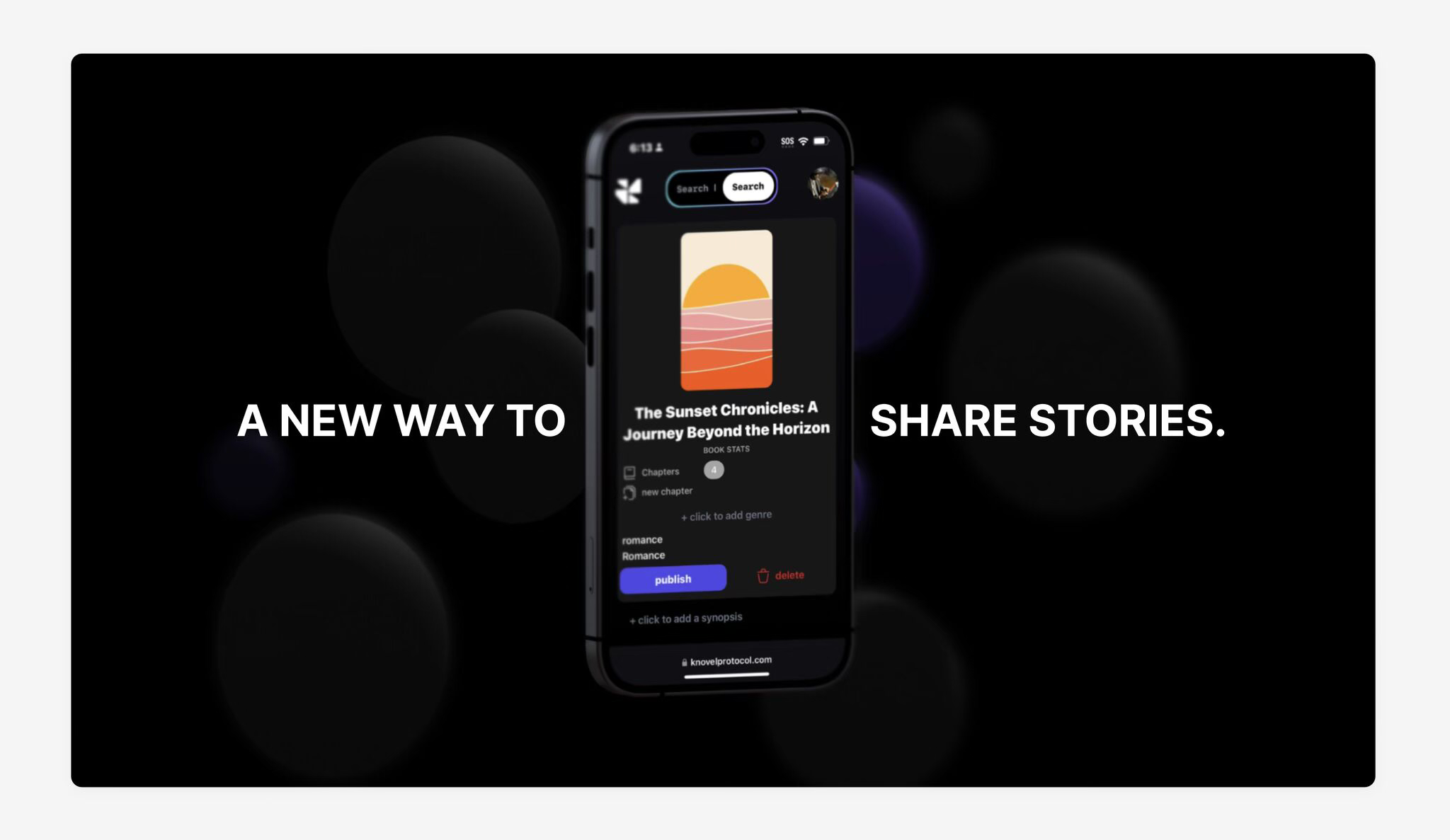
Case Study
Knovel Protocol: Lightning fast self-publishing
Role: Co-founder & Founding Product Designer
Company: Knovel ProtocolDuration: Jan 2024 – May 2024
Team: Head Engineer, Brand Designer, Tech Lead, Blockchain Developer, Digitization Specialist, Governance Risk & CompliancePlatform: Web3-enabled Web App (Desktop & Mobile Web)
Stage: Pre-seed, Concept to MVP (Shipped testnet)Tools: Figma, Solidity , Spline, Discord, Thirdweb, Firebase, Midjourney
Product Design
Research & Testing
Visual Design
Branding & Direction
Collaboration
Inside the Work
🧭 Setting the Context
In the quiet hum between old libraries and future ledgers, Knovel Protocol was born — a decentralized publishing platform built on the belief that stories are sovereign. When I joined the founding team as Chief Product Officer, we were a tight constellation of technologists, strategists, and creatives. Our shared north star? To rebuild publishing from the ground up using Web3 tools that empowered authors, rewarded readers, and made ownership transparent and permanent.
Our mission wasn’t to patch the old system. It was to replace it with something freer, fairer, and more vibrant. And that meant crafting not just a product — but a platform that felt like a portal.

From Quiet Libraries to a Loud New Chapter: How Elibra Became Knovel Protocol
What began as a quiet passion project in a public library — Elibra — is now evolving into something much more powerful: Knovel Protocol.
I spent months here, surrounded by the scent of books and the whisper of ideas, testing Elibra to bring the soul of libraries into the digital age. But I realized the future of knowledge-sharing couldn’t be confined to one platform. It needed to be collective, composable, and sovereign.
So Elibra grew — into a protocol, not just a product. A foundation where authors, publishers, and readers can write their own rules, publish freely, and preserve human wisdom on-chain.
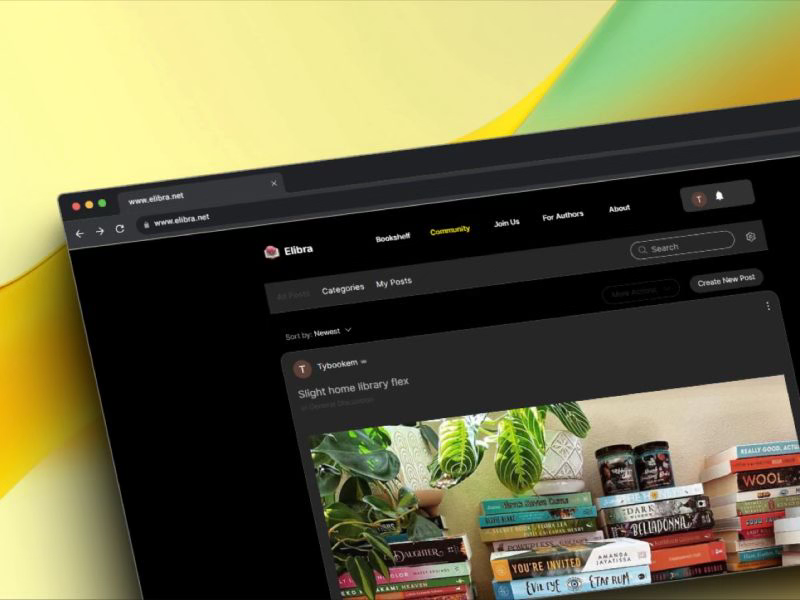
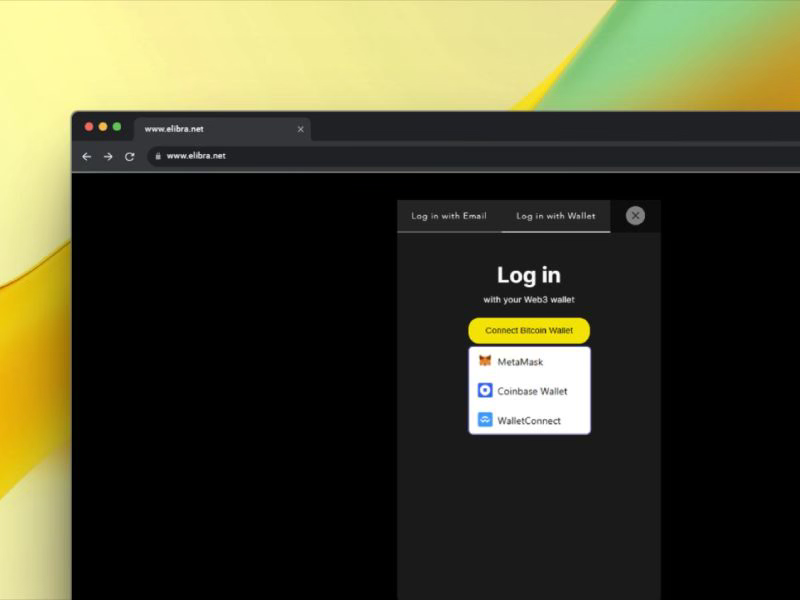
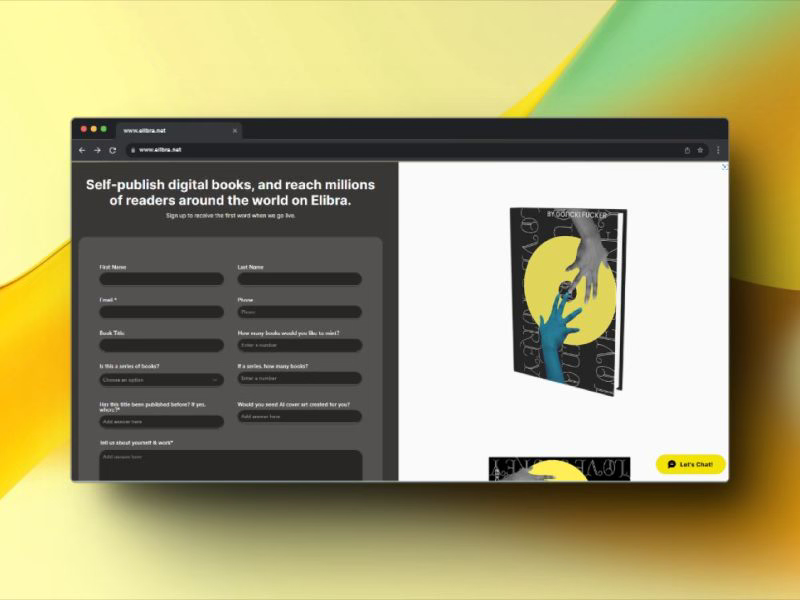
A Quiet Idea That Roared: From Library Corners to Web3's Center Stage
Among AI-driven super-apps and on-chain community tools, Knovel Protocol rose to the top, winning the pitch competition and capturing the imagination of the SocialFi movement.
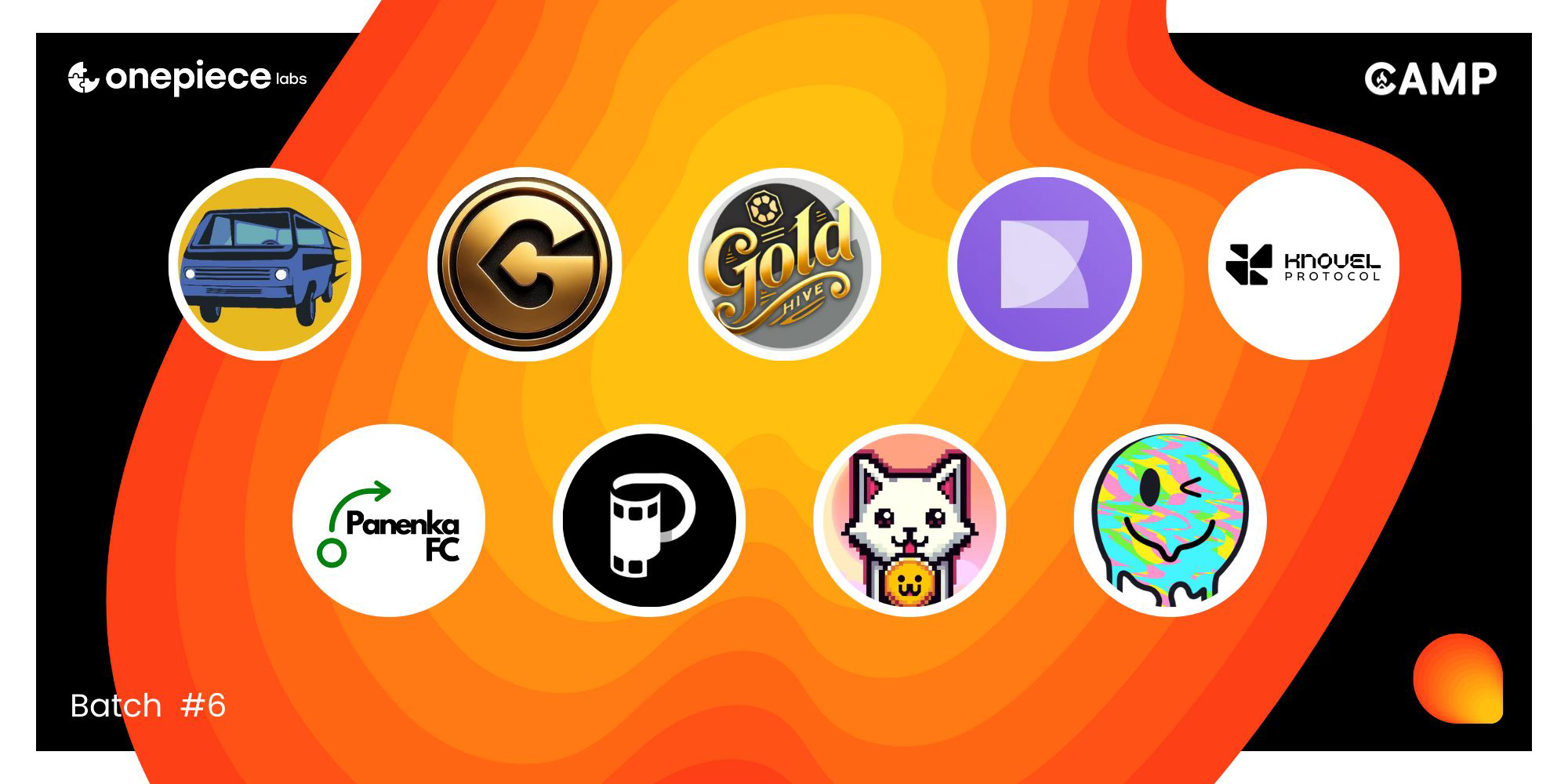
❗️The Problem
We began with one truth: the publishing industry is broken — not because people stopped writing, but because power became centralized and profits rarely reached the hands that held the pen.
We observed 3 root problems:
- Authors lacked ownership: Once a book was sold to a publisher, most rights were lost. Smart contracts could restore that sovereignty.
- Promotion was exhausting and ineffective: Self-publishing authors were left to “hack” their way through fragmented tools with no feedback loop.
- Reader communities were disconnected: Engagement ended at the last page. There were no ecosystems fostering continuous discovery, feedback, or shared cultural moments.
On the business side:
- Traditional platforms took 30–70% of revenue from book sales.
- There was no native way to incentivize early readers or superfans.
- Discovery algorithms often worked against niche or emerging voices.
This was our design challenge:
Could we create a publishing platform that gives creators ownership, readers agency, and communities coherence — without sacrificing usability or joy?

🧠 Opportunity
Create a decentralized protocol that:
- Encrypts books on upload
- Lets authors mint and sell finite digital editions
- Gives readers sovereign, resellable ownership
- Honors royalties and usage rights on-chain
🔨 Actions
With clarity of vision and a mission to empower storytellers in the decentralized era, I led the design of Knovel’s core author experience — a three-pillar system built to publish, promote, and participate.
1. Laying the Foundation: Web3 Publishing, Made Human
We architected a seamless onboarding experience via Thirdweb, allowing wallet and email login for mainstream and crypto-native users alike. Authors could draft, edit, and mint their books — all through an intuitive interface.
I worked closely with our blockchain developers to integrate NFT-based publishing with embedded royalties via smart contracts — automating payments to authors on every resale.
Why? Because creators should own their work permanently — and profit accordingly.
2. Igniting Visibility: Tools for Author-Led Promotion
We built a lightweight but powerful marketing dashboard: authors could deploy discount codes, trigger targeted email blasts, and monitor engagement in real-time.
Analytics were translated into visual feedback loops — a system of “reader ripples” that made momentum visible.Why? Because marketing shouldn’t feel like rocket science. Creators deserve tools that speak their language.
3. Cultivating Belonging: Reader-Writer Connection as Utility
We launched with a curated set of classic books — anchoring the platform in literary memory while inviting immediate interaction. Comment threads, highlights, and discussion rooms seeded community dynamics.
Authors could see their most engaged readers, host live Q&As, and reward early readers with unlockable content.Why? Because stories are not silent. They breathe better when shared.
📚 User Testing Insights
part of refining the transition from Elibra to Knovel Protocol, I conducted hands-on user testing sessions to observe how real users interact with the platform. We explored everything from account setup and profile creation to searching for books and using reading lists. I received valuable feedback on text formatting, paragraph structure, and citation needs—especially from authors and academic users. We also discussed the complexity of indexing and the opportunity to automate that process with smarter tools. This session affirmed the need for Knovel to not only support author monetization and reader engagement, but also to respect the craft of publishing—down to the typesetting.
✅ The Results
- In our first 6 months post-beta, Knovel Protocol became a living library with measurable traction:
- +100 authors onboarded with verified smart contract ownership
- +500 books minted as NFTs, including multi-format bundles (ebook, audiobook, annotated editions)
- 19% author-to-reader engagement via comments, bookmarks, and follows
- 43% of readers returned within 7 days, signaling strong UX and content stickiness
- Author NPS: +67 — driven by ease of use, revenue transparency, and ownership confidence
- Zero reported royalty disputes thanks to transparent smart contract automation
- We validated our vision not just in user numbers, but in culture:
- “This is the first time I’ve felt seen as a writer online.” — Early Knovel Creator“Feels like a writer’s co-op for the digital age.” — Reader Feedback

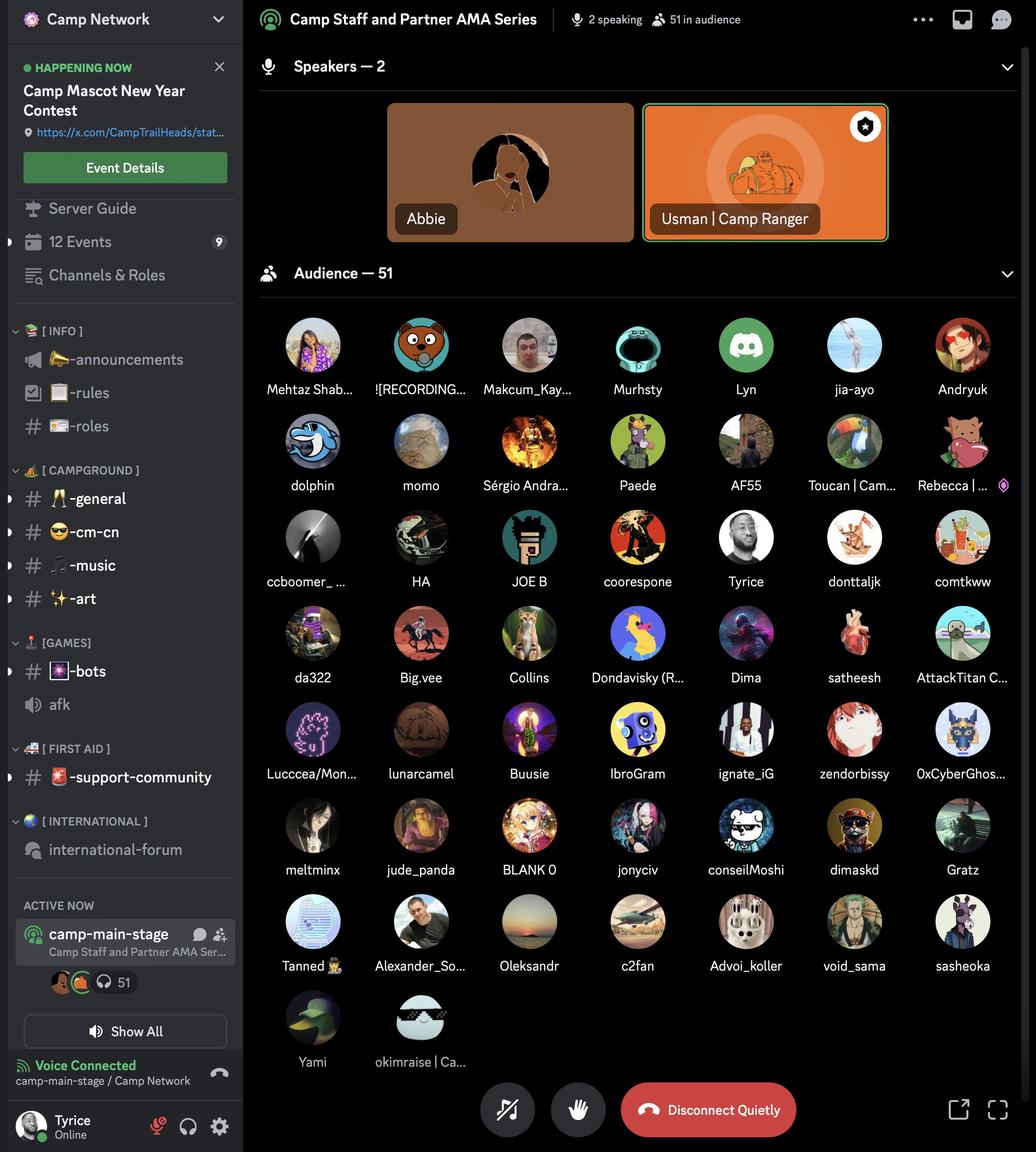
🎉 Final Product
- While still evolving, Knovel Protocol launched its MVP with a live product you can explore here.Note: due to ongoing development and privacy safeguards, live author environments may be limited to invited users.
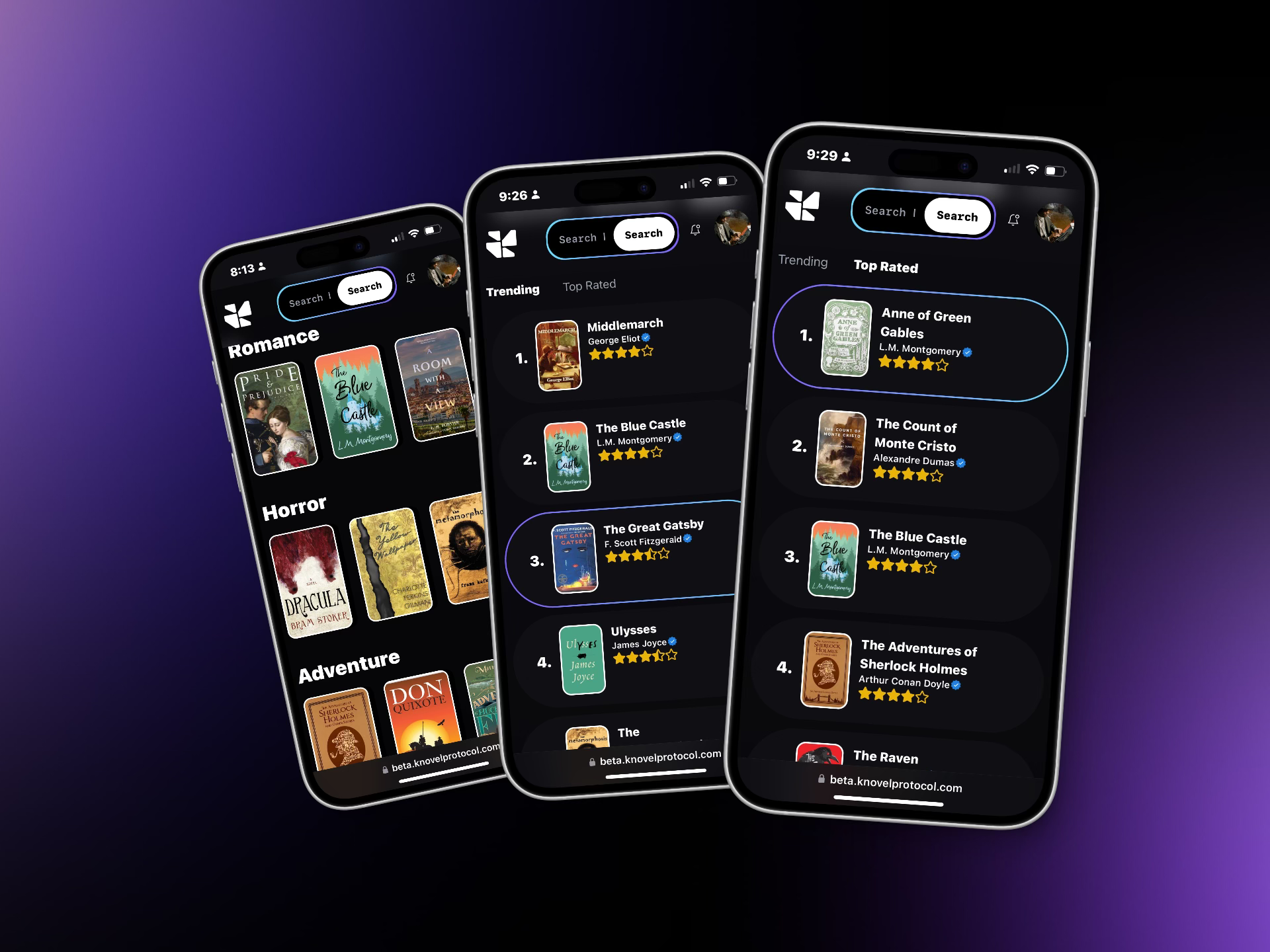
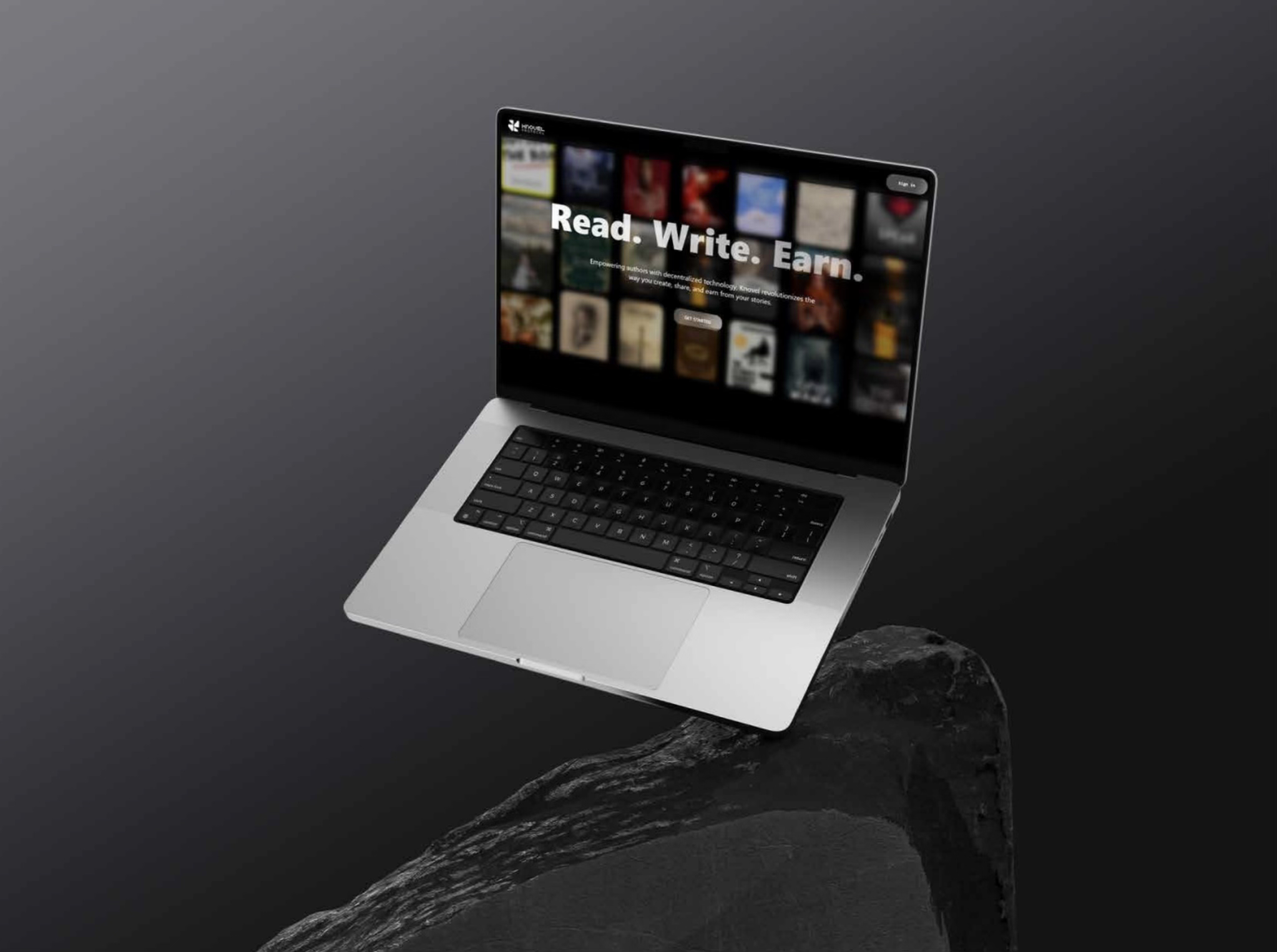
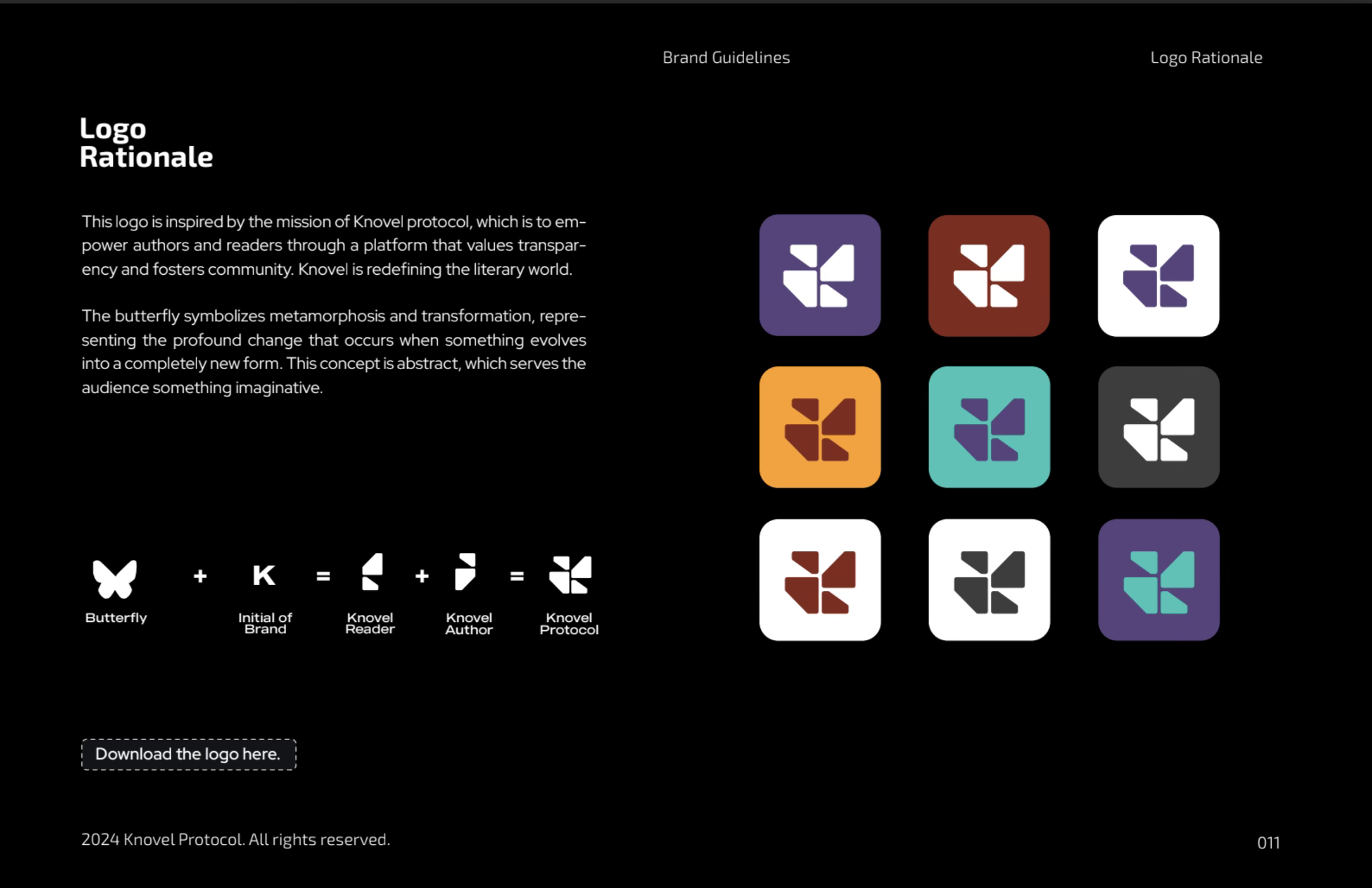
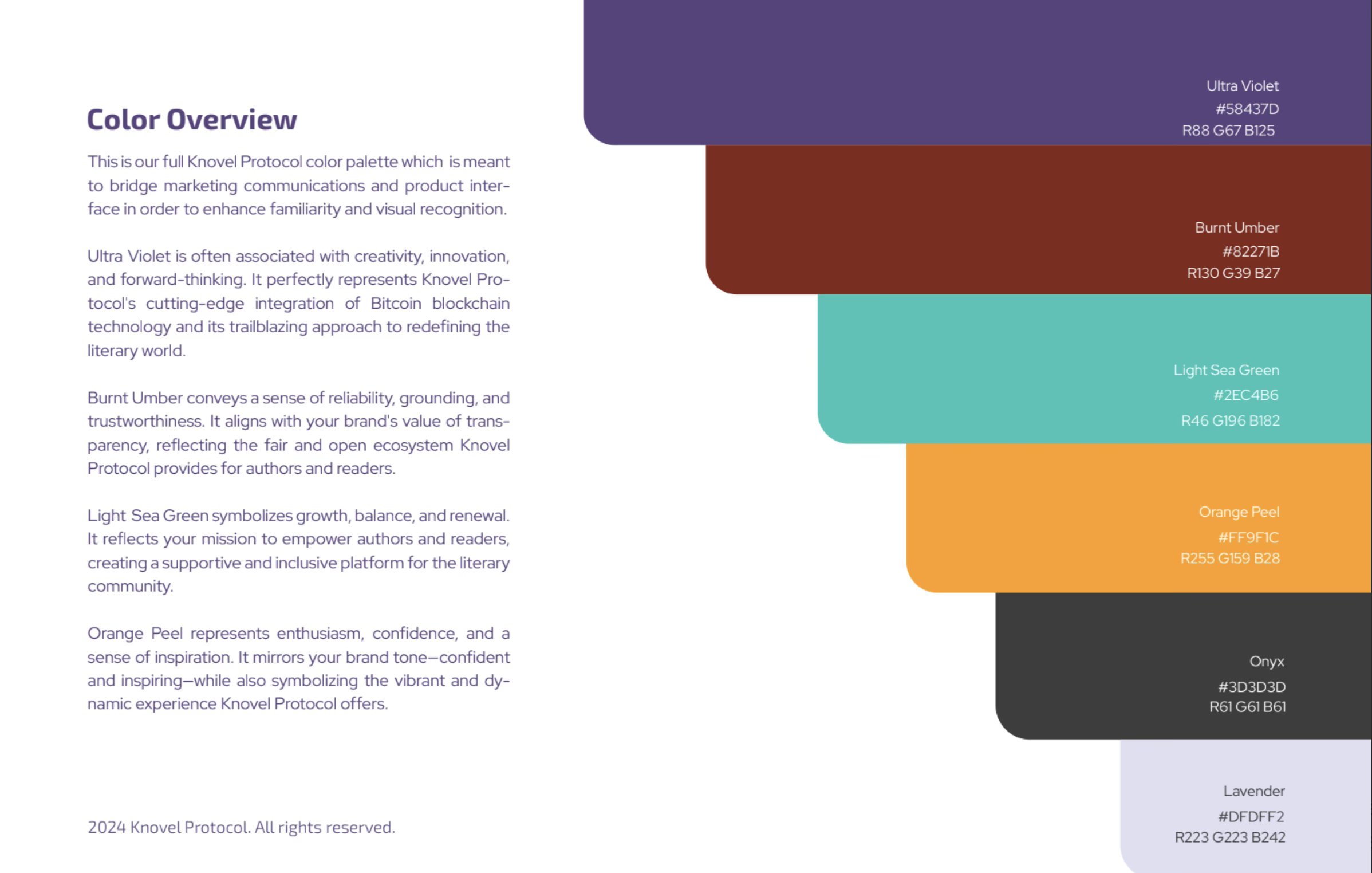
View demo
View Site
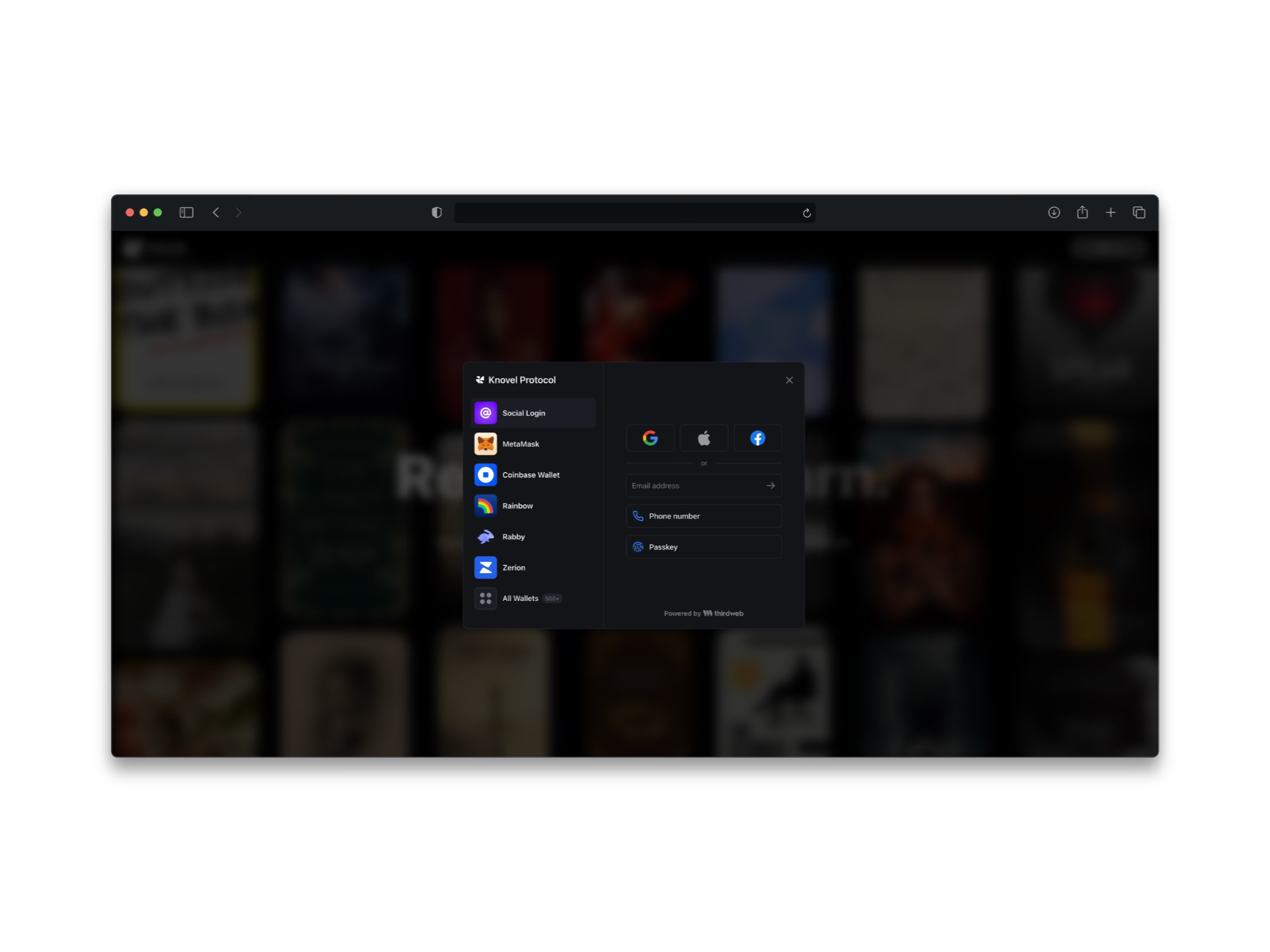
Other Projects
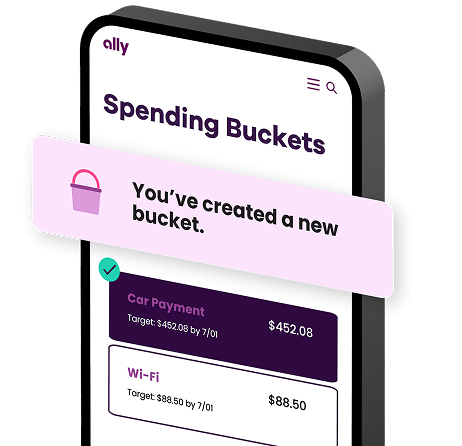
See Project
→
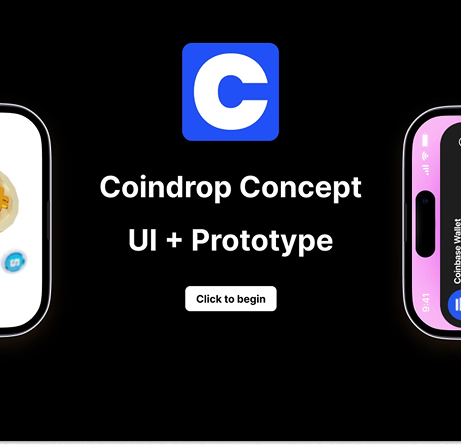
See Project
→
Connect with us to explore your project's potential.

OFFICE
San Francisco
CONTACT
contact@tyricehicks.com
SOCIAL
TYRICE HICKS

Case Study
Knovel Protocol: Lightning fast self-publishing
Role: Co-founder & Founding Product Designer
Company: Knovel ProtocolDuration: Jan 2024 – May 2024
Team: Head Engineer, Brand Designer, Tech Lead, Blockchain Developer, Digitization Specialist, Governance Risk & CompliancePlatform: Web3-enabled Web App (Desktop & Mobile Web)
Stage: Pre-seed, Concept to MVP (Shipped testnet)Tools: Figma, Solidity , Spline, Discord, Thirdweb, Firebase, Midjourney
Product Design
Research & Testing
Visual Design
Branding & Direction
Collaboration
Inside the Work
🧭 Setting the Context
In the quiet hum between old libraries and future ledgers, Knovel Protocol was born — a decentralized publishing platform built on the belief that stories are sovereign. When I joined the founding team as Chief Product Officer, we were a tight constellation of technologists, strategists, and creatives. Our shared north star? To rebuild publishing from the ground up using Web3 tools that empowered authors, rewarded readers, and made ownership transparent and permanent.
Our mission wasn’t to patch the old system. It was to replace it with something freer, fairer, and more vibrant. And that meant crafting not just a product — but a platform that felt like a portal.

From Quiet Libraries to a Loud New Chapter: How Elibra Became Knovel Protocol
What began as a quiet passion project in a public library — Elibra — is now evolving into something much more powerful: Knovel Protocol.
I spent months here, surrounded by the scent of books and the whisper of ideas, testing Elibra to bring the soul of libraries into the digital age. But I realized the future of knowledge-sharing couldn’t be confined to one platform. It needed to be collective, composable, and sovereign.
So Elibra grew — into a protocol, not just a product. A foundation where authors, publishers, and readers can write their own rules, publish freely, and preserve human wisdom on-chain.



A Quiet Idea That Roared: From Library Corners to Web3's Center Stage
Among AI-driven super-apps and on-chain community tools, Knovel Protocol rose to the top, winning the pitch competition and capturing the imagination of the SocialFi movement.

❗️The Problem
We began with one truth: the publishing industry is broken — not because people stopped writing, but because power became centralized and profits rarely reached the hands that held the pen.
We observed 3 root problems:
- Authors lacked ownership: Once a book was sold to a publisher, most rights were lost. Smart contracts could restore that sovereignty.
- Promotion was exhausting and ineffective: Self-publishing authors were left to “hack” their way through fragmented tools with no feedback loop.
- Reader communities were disconnected: Engagement ended at the last page. There were no ecosystems fostering continuous discovery, feedback, or shared cultural moments.
On the business side:
- Traditional platforms took 30–70% of revenue from book sales.
- There was no native way to incentivize early readers or superfans.
- Discovery algorithms often worked against niche or emerging voices.
This was our design challenge:
Could we create a publishing platform that gives creators ownership, readers agency, and communities coherence — without sacrificing usability or joy?

🧠 Opportunity
Create a decentralized protocol that:
- Encrypts books on upload
- Lets authors mint and sell finite digital editions
- Gives readers sovereign, resellable ownership
- Honors royalties and usage rights on-chain
🔨 Actions
With clarity of vision and a mission to empower storytellers in the decentralized era, I led the design of Knovel’s core author experience — a three-pillar system built to publish, promote, and participate.
1. Laying the Foundation: Web3 Publishing, Made Human
We architected a seamless onboarding experience via Thirdweb, allowing wallet and email login for mainstream and crypto-native users alike. Authors could draft, edit, and mint their books — all through an intuitive interface.
I worked closely with our blockchain developers to integrate NFT-based publishing with embedded royalties via smart contracts — automating payments to authors on every resale.
Why? Because creators should own their work permanently — and profit accordingly.
2. Igniting Visibility: Tools for Author-Led Promotion
We built a lightweight but powerful marketing dashboard: authors could deploy discount codes, trigger targeted email blasts, and monitor engagement in real-time.
Analytics were translated into visual feedback loops — a system of “reader ripples” that made momentum visible.Why? Because marketing shouldn’t feel like rocket science. Creators deserve tools that speak their language.
3. Cultivating Belonging: Reader-Writer Connection as Utility
We launched with a curated set of classic books — anchoring the platform in literary memory while inviting immediate interaction. Comment threads, highlights, and discussion rooms seeded community dynamics.
Authors could see their most engaged readers, host live Q&As, and reward early readers with unlockable content.Why? Because stories are not silent. They breathe better when shared.
📚 User Testing Insights
As part of refining the transition from Elibra to Knovel Protocol, I conducted hands-on user testing sessions to observe how real users interact with the platform. We explored everything from account setup and profile creation to searching for books and using reading lists. I received valuable feedback on text formatting, paragraph structure, and citation needs—especially from authors and academic users. We also discussed the complexity of indexing and the opportunity to automate that process with smarter tools. This session affirmed the need for Knovel to not only support author monetization and reader engagement, but also to respect the craft of publishing—down to the typesetting.
✅ The Results
- In our first 6 months post-beta, Knovel Protocol became a living library with measurable traction:
- +100 authors onboarded with verified smart contract ownership
- +500 books minted as NFTs, including multi-format bundles (ebook, audiobook, annotated editions)
- 19% author-to-reader engagement via comments, bookmarks, and follows
- 43% of readers returned within 7 days, signaling strong UX and content stickiness
- Author NPS: +67 — driven by ease of use, revenue transparency, and ownership confidence
- Zero reported royalty disputes thanks to transparent smart contract automation
- We validated our vision not just in user numbers, but in culture:
- “This is the first time I’ve felt seen as a writer online.” — Early Knovel Creator“Feels like a writer’s co-op for the digital age.” — Reader Feedback


🎉 Final Product
- While still evolving, Knovel Protocol launched its MVP with a live product you can explore here.Note: due to ongoing development and privacy safeguards, live author environments may be limited to invited users.


View demo
View Site

Other Projects

See Project
→

See Project
→
Connect with me to explore your project's potential.

HOME OFFICE
San Francisco
CONTACT
contact@tyricehicks.com
SOCIAL
TYRICE HICKS

Case Study
Knovel Protocol: Lightning fast self-publishing
Role: Co-founder & Founding Product Designer
Company: Knovel ProtocolDuration: Jan 2024 – May 2024
Team: Head Engineer, Brand Designer, Tech Lead, Blockchain Developer, Digitization Specialist, Governance Risk & CompliancePlatform: Web3-enabled Web App (Desktop & Mobile Web)
Stage: Pre-seed, Concept to MVP (Shipped testnet)Tools: Figma, Solidity , Spline, Discord, Thirdweb, Firebase, Midjourney
Product Design
Research & Testing
Visual Design
Branding & Direction
Collaboration
Inside the Work
🧭 Setting the Context
In the quiet hum between old libraries and future ledgers, Knovel Protocol was born — a decentralized publishing platform built on the belief that stories are sovereign. When I joined the founding team as Chief Product Officer, we were a tight constellation of technologists, strategists, and creatives. Our shared north star? To rebuild publishing from the ground up using Web3 tools that empowered authors, rewarded readers, and made ownership transparent and permanent.
The spark for this collaboration was lit during a Bitcoin Startup Lab cohort. I was building Elibra, a Bitcoin-powered digital library, while Abbie — now my co-founder — had already created Fictive Labs, a platform grounded in similar values. We were introduced via email, and that serendipitous connection became the foundation for what would evolve into Knovel Protocol.
Our mission wasn’t to patch the old system. It was to replace it with something freer, fairer, and more vibrant. And that meant crafting not just a product — but a platform that felt like a portal.

From Quiet Libraries to a Loud New Chapter: How Elibra Became Knovel Protocol
What began as a quiet passion project in a public library — Elibra — is now evolving into something much more powerful: Knovel Protocol.
I spent months here, surrounded by the scent of books and the whisper of ideas, testing Elibra to bring the soul of libraries into the digital age. But I realized the future of knowledge-sharing couldn’t be confined to one platform. It needed to be collective, composable, and sovereign.
So Elibra grew — into a protocol, not just a product. A foundation where authors, publishers, and readers can write their own rules, publish freely, and preserve human wisdom on-chain.



A Quiet Idea That Roared: From Library Corners to Web3's Center Stage
Among AI-driven super-apps and on-chain community tools, Knovel Protocol rose to the top, winning the pitch competition and capturing the imagination of the SocialFi movement.

❗️The Problem
We began with one truth: the publishing industry is broken — not because people stopped writing, but because power became centralized and profits rarely reached the hands that held the pen.
We observed 3 root problems:
- Authors lacked ownership: Once a book was sold to a publisher, most rights were lost. Smart contracts could restore that sovereignty.
- Promotion was exhausting and ineffective: Self-publishing authors were left to “hack” their way through fragmented tools with no feedback loop.
- Reader communities were disconnected: Engagement ended at the last page. There were no ecosystems fostering continuous discovery, feedback, or shared cultural moments.
On the business side:
- Traditional platforms took 30–70% of revenue from book sales.
- There was no native way to incentivize early readers or superfans.
- Discovery algorithms often worked against niche or emerging voices.
This was our design challenge:
Could we create a publishing platform that gives creators ownership, readers agency, and communities coherence — without sacrificing usability or joy?

🧠 Opportunity
Create a decentralized protocol that:
- Encrypts books on upload
- Lets authors mint and sell finite digital editions
- Gives readers sovereign, resellable ownership
- Honors royalties and usage rights on-chain
🔨 Actions
With clarity of vision and a mission to empower storytellers in the decentralized era, I led the design of Knovel’s core author experience — a three-pillar system built to publish, promote, and participate.
1. Laying the Foundation: Web3 Publishing, Made Human
We architected a seamless onboarding experience via Thirdweb, allowing wallet and email login for mainstream and crypto-native users alike. Authors could draft, edit, and mint their books — all through an intuitive interface.
I worked closely with our blockchain developers to integrate NFT-based publishing with embedded royalties via smart contracts — automating payments to authors on every resale.
Why? Because creators should own their work permanently — and profit accordingly.
2. Igniting Visibility: Tools for Author-Led Promotion
We built a lightweight but powerful marketing dashboard: authors could deploy discount codes, trigger targeted email blasts, and monitor engagement in real-time.
Analytics were translated into visual feedback loops — a system of “reader ripples” that made momentum visible.Why? Because marketing shouldn’t feel like rocket science. Creators deserve tools that speak their language.
3. Cultivating Belonging: Reader-Writer Connection as Utility
We launched with a curated set of classic books — anchoring the platform in literary memory while inviting immediate interaction. Comment threads, highlights, and discussion rooms seeded community dynamics.
Authors could see their most engaged readers, host live Q&As, and reward early readers with unlockable content.Why? Because stories are not silent. They breathe better when shared.
📚 User Testing Insights
As part of refining the transition from Elibra to Knovel Protocol, I conducted hands-on user testing sessions to observe how real users interact with the platform. We explored everything from account setup and profile creation to searching for books and using reading lists. I received valuable feedback on text formatting, paragraph structure, and citation needs—especially from authors and academic users. We also discussed the complexity of indexing and the opportunity to automate that process with smarter tools. This session affirmed the need for Knovel to not only support author monetization and reader engagement, but also to respect the craft of publishing—down to the typesetting.
✅ The Results
- In our first 6 months post-beta, Knovel Protocol became a living library with measurable traction:
- +100 authors onboarded with verified smart contract ownership
- +500 books minted as NFTs, including multi-format bundles (ebook, audiobook, annotated editions)
- 19% author-to-reader engagement via comments, bookmarks, and follows
- 43% of readers returned within 7 days, signaling strong UX and content stickiness
- Author NPS: +67 — driven by ease of use, revenue transparency, and ownership confidence
- Zero reported royalty disputes thanks to transparent smart contract automation
- We validated our vision not just in user numbers, but in culture:
- “This is the first time I’ve felt seen as a writer online.” — Early Knovel Creator“Feels like a writer’s co-op for the digital age.” — Reader Feedback


🎉 Final Product
- While still evolving, Knovel Protocol launched its MVP with a live product you can explore here.Note: due to ongoing development and privacy safeguards, live author environments may be limited to invited users.




View demo
View Site

Other Projects

See Project
→

See Project
→
Connect with us to explore your project's potential.
Connect with me to explore your project's potential.

HOME OFFICE
San Francisco
CONTACT
contact@tyricehicks.com
SOCIAL
TYRICE HICKS
